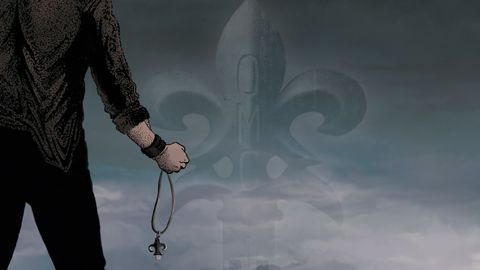The fact that Geoff Tate has called this project Operation: Mindcrime says everything about where he feels the music should go. This is the second part of a conceptual trilogy, and while The Key, the first part, offered some interesting musical ideas, unfortunately Resurrection is more broody and pretentious than dark and mysterious.The whole style here is supposedly menacing, as Tate attempts to deliver a slightly quasi-religious treatise. But while you cannot fault the musicianship from an ensemble that includes some major names from the metal world, what’s missing is drama.
Tate’s own voice sounds, at times, a little too packed with effects; this doesn’t do much for the timbre and delivery which have made his name. Moreover, no song here is sufficiently well rounded and creative to make any lasting impact. The storyline is about lead character ‘H’ and his ongoing quest to launch ‘The New Reality’. It all sounds jumbled, lacking the perspective that made Operation: Mindcrime such a landmark album nearly 30 years ago. Geoff Tate’s talent needs a different environment in which to flourish. This sounds like he’s trying to prove something to his old bandmates.


